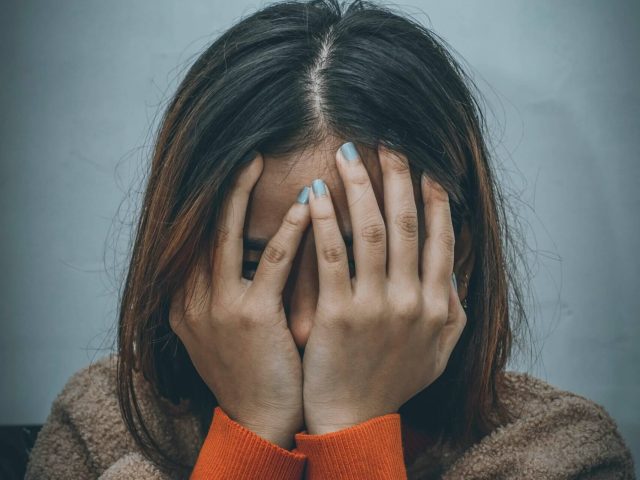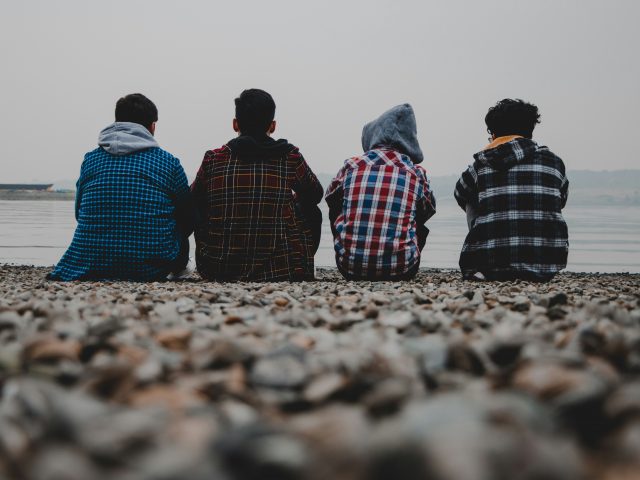5 Quotes that Show How Dads Can Help Daughters Avoid Abusive Relationships
The moment when your daughter begins to date is probably one of the most frightening times for any father. As a parent, you have spent years doing everything you can to protect your daughter from the world, so it can be hard to accept the switch from guardian and provider to bystander. But believe it or not, fathers play a critical role in their daughter’s dating life. In a focus group held by One Love, intimate partner violence experts asked survivors of relationship abuse to share their stories and give advice for parents looking to talk to their children about dating relationships. And while this advice came directly from female survivors, any parent can use the following 5 tips to help both sons and daughters avoid abusive relationships.
“It would have really hit home for me if my dad had said something to me [while I was in an abusive relationship]. There was that point where I started to know it was really, really bad. I was still emotionally tied to [my partner] and wanted to give him second chances, work through it and love him. But if my dad had said something, opened up his heart, that could have been the one emotional trigger for me because we grew up so close.”
The advice: Fathers often feel like it’s not their place to intervene in their daughter’s dating life. However, survivors overwhelmingly expressed how important their fathers were and could have been when they were experiencing abuse. If something seems off with your daughter’s relationship, you can really help by saying something.
“I felt like being in a relationship was a social achievement. It’s was a marker. It would’ve been helpful if [my parents] said that the more important thing was that it was a happy and healthy relationship. Not that you were in one.”
The advice: A common theme expressed by survivors was that they felt like they had to be in a relationship to be successful in the eyes of their parents. This perception prevented them from talking to their parents about what was really going on. You can help relieve some of this pressure by letting your daughter or child know that a relationship is not a social achievement that you expect of them.
“[Fathers should] bring up the fact that just because someone doesn’t hit you that doesn’t mean it’s not abuse. Within our culture, my dad and brother absolutely said, “if anyone ever lays a hand on you, I will find them and I will…,” you know. But in my mind, I said, ‘Oh, he’s just yelling. Oh, he’s just drunk. Oh, he’s just angry. Oh, he’s just throwing things at me…Oh, he didn’t hit me, so it’s not abuse.’ I’ve learned that is 100% not the case and I wish that that was something that my parents would have at least broached with me at some point, because that would have been so helpful.”
The advice: Too often, people don’t identify what they are experiencing as abuse because they aren’t being physically hurt by their partner. Teaching your daughter that emotional abuse is just as damaging and can escalate to violence will help them understand that emotional abuse qualifies as abuse, too.
“My family just absolutely adored him and they were so excited that I finally found my good Christian man…That was another reason I didn’t want to divulge to my family, because they had such a [misrepresented idea] of who he truly was.”
The advice: Survivors described being worried about disappointing their parents and feeling the need to protect them from the news. They also talked about being influenced by the relationship their parents had with their abusive partner. You can help make it easier for your daughter talk to you about these difficult things by letting her know that you are always on her side – no matter what.
“I wish that my parents would have let me know that even though they were raising me to be this independent, strong person, that it was okay if I [ended up in a situation and I needed help to get out of it.] I just felt like I couldn’t go to them because I was afraid of disappointing them. I was afraid of telling them that I had gotten myself in this.”
The advice: Sometimes the expectations that parents place on their children can make them feel as though they need to maintain an image of perfection in the eyes of their parents. Remind your daughter that it’s okay to ask for help. Just because your daughter is in an unhealthy or abusive relationship, let her know that it won’t change how you look at her.
Browse by Category

How To Talk To A Friend In An Unhealthy Relationship
It’s not easy to know how to talk to a friend when we’re worried they’re in an unhealthy relationship. We…
How to Practice Allyship Using the 10 Signs
During the month of June the United States observes both…
Hope After Abuse: What I Wish I Knew About Relationships In College
As a freshman in college – my first real time…
A Crash Course In Handling Rejection
The spring/summer cusp is an exciting time of year: long…
What Movie Prom Scenes Can Teach Us About Relationships
Prom season is upon us and millions of high school…














